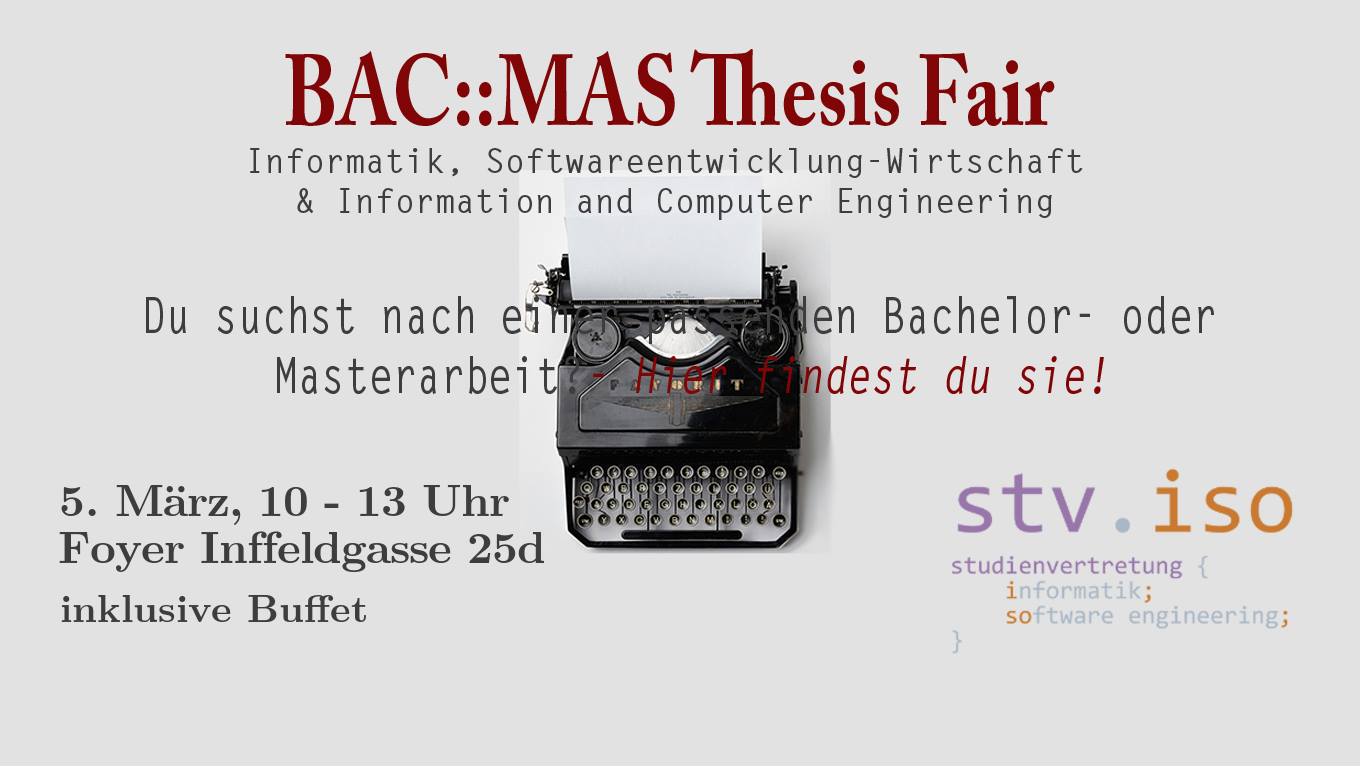Looking for a Master Thesis?
IAIK might have just the right topics in your field of interest. Find out more & use the opportunity to personally speak to assistants of our institute.
Come over to the Bac::Mas Thesis Fair !
>> 5th March, at 10am-1pm, Inffeldgasse 25d (foyer).
New theses topics will be online by 22nd February – check them out here!

 ©Studienvertretung für Informatik und Softwareentwicklung-Wirtschaft und Studienvertretung für Information and Computer Engineering an der Technischen Universität Graz
©Studienvertretung für Informatik und Softwareentwicklung-Wirtschaft und Studienvertretung für Information and Computer Engineering an der Technischen Universität Graz
 © IAIK
© IAIK




 © Lunghammer - TU Graz
© Lunghammer - TU Graz 